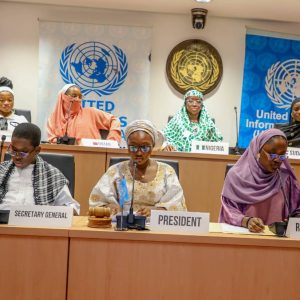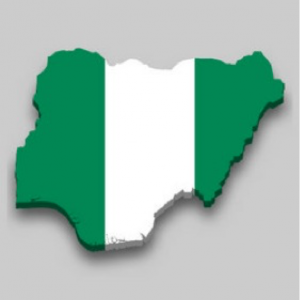Vincent Obia writes on the next phase of the Nigerian politics after the late former President Muhammadu Buhari, especially the question of who would inherit his loyal followers
Nigerians gathered in Daura, Katsina State, on Tuesday to bid farewell to the late former President Muhammadu Buhari. It was a grand event that brought together people from different walks of life, across social classes, from Nigeria and beyond.
In his honour, a huge funeral parlour appeared in his Daura hometown from Sunday, July 13, when news of his death at a London clinic broke.

With the funeral over, the next question on the minds of many in Nigeria’s political circles is the fate of Buhari’s seemingly dedicated vote bank.
Buhari, who died at 82, was military Head of State from 1984 to 1985, and civilian president for two terms, from 2015 to 2023. He was one of only two Nigerians who had transmuted from a military ruler to democratically-elected leader. Before winning the presidential election in 2015, he had contested three times, consecutively in 2003, 2007, and 2011, maintaining a consistent 12 million plus votes in two election cycles – 2003 and 2011. He did below the 12 million count in 2007, when he contested against a fellow Katsina man, Umaru Yar’Adua, amid allegations of vote rigging.
Buhari’s loyal bloc of supporters has been an important factor in Nigerian politics since the Fourth Republic. In 2003, he polled 12.4 million votes (32 per cent of the votes cast) on the platform of All Nigeria Peoples Party (ANPP), and lost to President Olusegun Obasanjo, who got 24.1 million votes (61 per cent of the votes) under Peoples Democratic Party (PDP).
In the 2003 election, Buhari won in Bauchi, Borno, Gombe, Jigawa, Kano, Katsina, Kebbi, Sokoto, Yobe, and Zamfara.
Buhari got 12.2 million votes (31.9 per cent of the votes) in 2011 on the platform of Congress for Progressive Change (CPC), against President Goodluck Jonathan’s 22.4 million votes (58.8 per cent of the votes). He won in Adamawa, Bauchi, Gombe, Jigawa, Kaduna, Kano, Katsina, Niger, Sokoto, Yobe, and Zamfara.
The late president had maintained a fairly consistent community of voters in the North-east and North-west geopolitical zones, until 2015, when he expanded his voter base to other parts of the country, especially the South-west, under the All Progressives Congress (APC) coalition.
With the decades-old allegiance of Buhari’s followers now up for grabs, the question is, are there potential heirs to his legacy?
A close associate of the late president, who served as Attorney-General of the Federation (AGF) and Minister of Justice in his administration, Abubakar Malami, (SAN), has declared that any potential inheritors of the loyalty of Buhari’s electoral bloc must fit into certain characteristics.
Malami said on Channels TV, “Buhari left behind a legacy and that legacy is the legacy of service. He left behind the legacy of the votes. They are votes that are rooted in service; they are rooted in transparency, accountability, and above all, sacrifice.”
Buhari was popular with the downtrodden in the north – talakawas – and he was respected by the elite in the region. Yet, none among the elite seems to have the cult following he had.
Before the 2023 presidential election, there were claims of inheritance of the votes of the then retired Buhari by some northern candidates.
Atiku’s campaign spokesman, Daniel Bwala, said on ARISE TV, “Atiku has inherited the over 12 million votes that Buhari has carried for these years. All you need to do is to look at the Katsina rally, and to look at all the rallies of APC in the North-central and North-west. Any time they chant Nigeria, the people will say, sai Atiku. It is a movement.”
Atiku was presidential candidate of PDP in the 2023 general election.
The spokesman of the New Nigeria Peoples Party (NNPP) presidential campaign committee, Abubakar Yesufu, also made a similar claim before the 2023 poll. Yesufu said the NNPP presidential candidate, Rabiu Kwankwaso, was set to inherit Buhari’s votes.
Yesufu stated, “Kwankwaso is the true representative of the north. He is set to prove this fact on February 25. He is set to claim Muhammadu Buhari’s 12 million votes in the kitty.”
In a veiled reference to Atiku, Yesufu added, “From the late Ahmadu Bello, Alhaji Tafawa Balewa, Alhaji Shehu Shagari, Alhaji Aminu Kano to President Muhammadu Buhari, none has exhibited vulgar wealth as those presently masquerading as leaders.”
Despite the claims, neither Atiku nor Kwankwaso came close to inheriting the votes Buhari left. Though Atiku won in some of the traditional Buhari states in the north, the win could be attributed to the influence of the state governors, who supported him.
But Buhari put up a good fight against the opposition in politics on the strength of his own personality. For instance, he performed impressively in 2011 on the platform of CPC without the party having any governor from that election.
Kwankwaso won only in Kano State during the 2023 election.
Will President Bola Tinubu stand a chance of inheriting the votes?
Outside the north, taking over Buhari’s northern electoral base would be quite challenging due to entrenched cultural and emotional issues. If not, President Tinubu could easily have filled the void and inherited the votes for the APC, given that Buhari belonged to the same party with Tinubu, who was instrumental to Buhari’s 2015 electoral victory.
For similar reasons, also, the Labour Party (LP) presidential candidate in 2023, Peter Obi, would find it difficult to establish any beneficial links with the electoral base Buhari left behind, despite sharing some ideological beliefs with the former president.
Veteran journalist and former political adviser to Obasanjo, Akin Osuntokun, said during the Buhari administration, “Apart from being the president, he has always been a hero to a large number of people who are going to vote, which reinforces his capacity to determine who would go.
“I can’t see any individual in the north, any governor, who can go against his wishes without paying a price.”
Osuntokun added, “The style of the presidency of Buhari is a personality cult, a personality cult president, who just says this is what I want and everybody falls in line.”
Nigeria, for now, does not seem to have a rallying figure capable of inheriting Buhari’s northern electoral stronghold. What appears feasible is a dispersal of his bloc of supporters among key northern politicians, with a strong tendency for shifting loyalties.
Generally, loyalty is cultivated, not conferred. Leaders who stir the hearts of their people do so on the altar of personal sacrifice, which warms them to the people and sets them apart from the crowd. It is hardly inherited. Which explains why no one in the South-west, for instance, was able to inherit the cult following of Chief Obafemi Awolowo. And in the north, followers of leaders, like Ahmadu Bello and Aminu Kano, were hardly inherited.
The exit of Buhari, thus, seems to open a new chapter in the country’s political journey, which would increasingly de-emphasise the influence of cults of personality in politics.
A member of African Democratic Congress (ADC), Mallam Salihu Lukman, said the death of Buhari signified an end to the era of creating leaders with an image of infallible heroes, whose political endorsements or nominations are automatically taken as victory.
Lukman stated, “What we must learn, most especially in the coalition, is that we don’t have somebody with the kind of intimidating profile like that of late Buhari and what that means is that all the leaders of the coalition need to be humble and acknowledge that they need one another, and in the context of that, develop a strong team work. I think that is the challenge we are all facing. Our leaders must have a kind of team spirit.”
He said politicians must begin to take issues of humility in public office, fulfilment of campaign promises, and negotiation of good relationships with the citizens more seriously.
In the new political chapter, democratic institutions, like the Independent National Electoral Commission (INEC), would need to be strengthened, with more attention paid to democratic principles, such as the rule of law and separation of powers. It would also involve promoting the culture of accountability, and change from personality-driven to issue-based politics.
The next few months, especially the period before the 2027 general election, will be critical in determining the colour of politics in Nigeria after Buhari. This is as the fate of his followers and their votes remains uncertain.
Stay ahead with the latest updates!
Join The Podium Media on WhatsApp for real-time news alerts, breaking stories, and exclusive content delivered straight to your phone. Don’t miss a headline — subscribe now!
Chat with Us on WhatsApp








